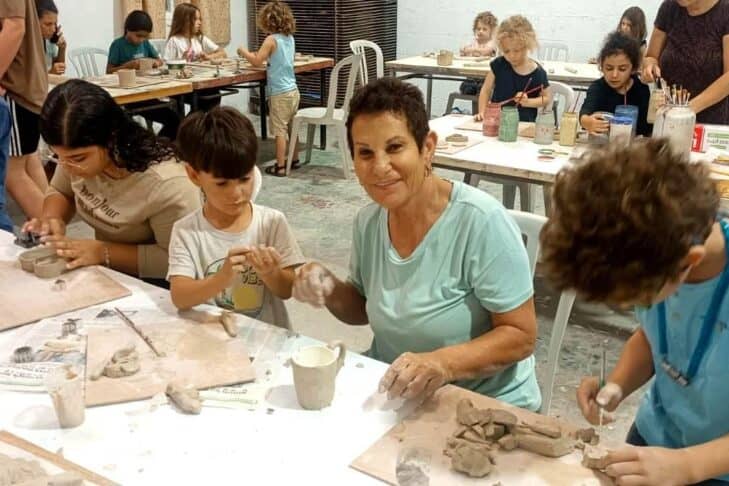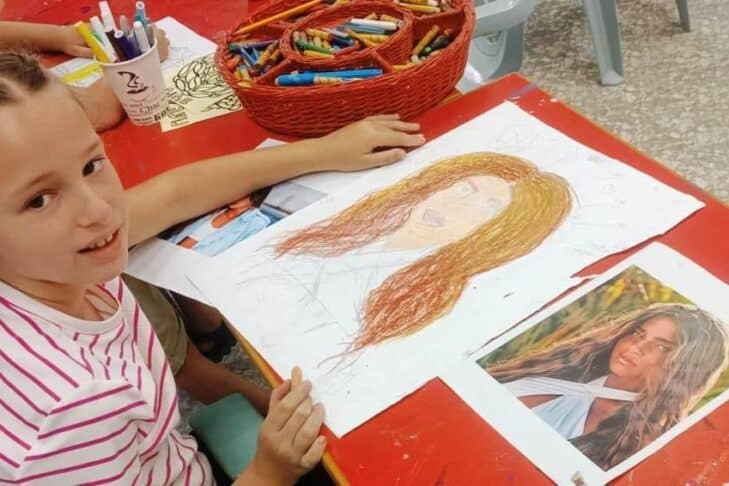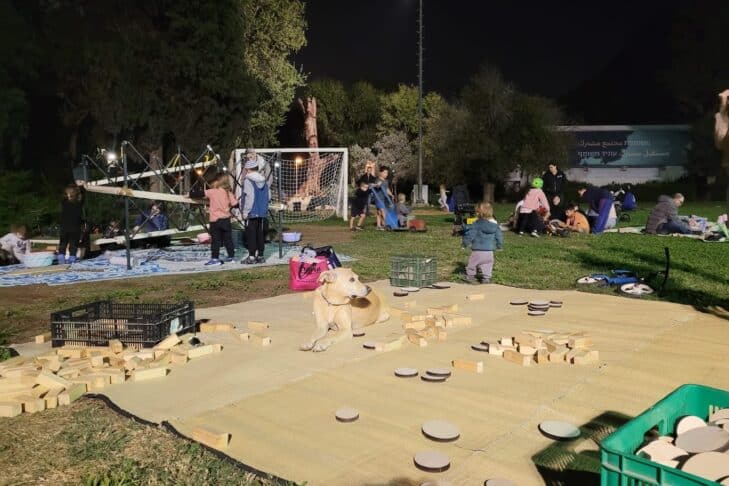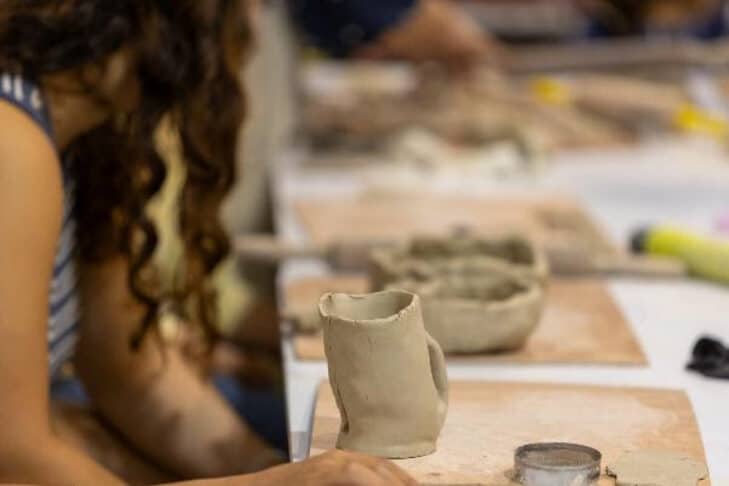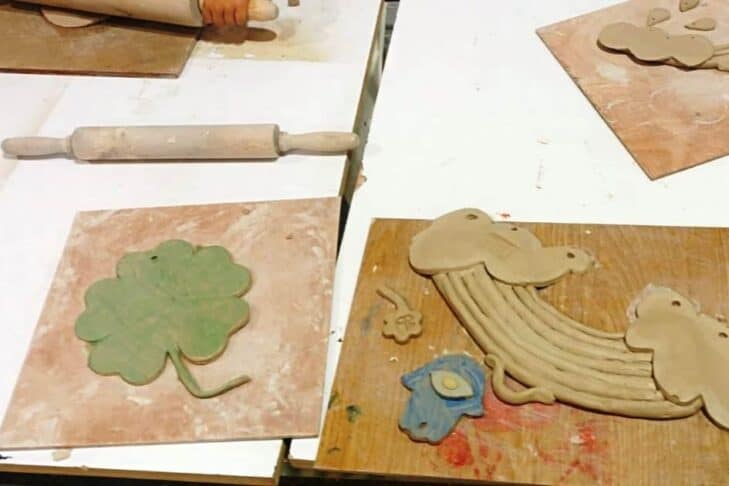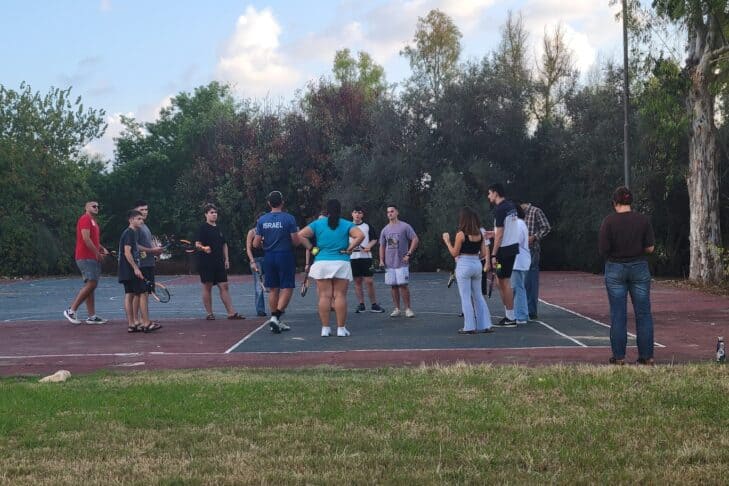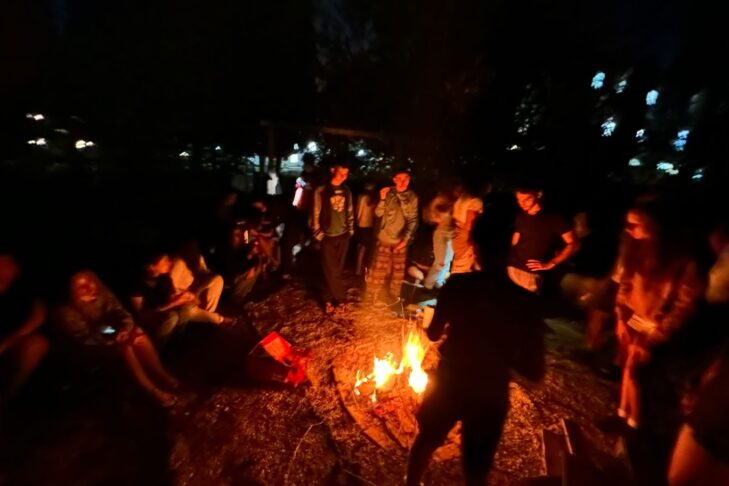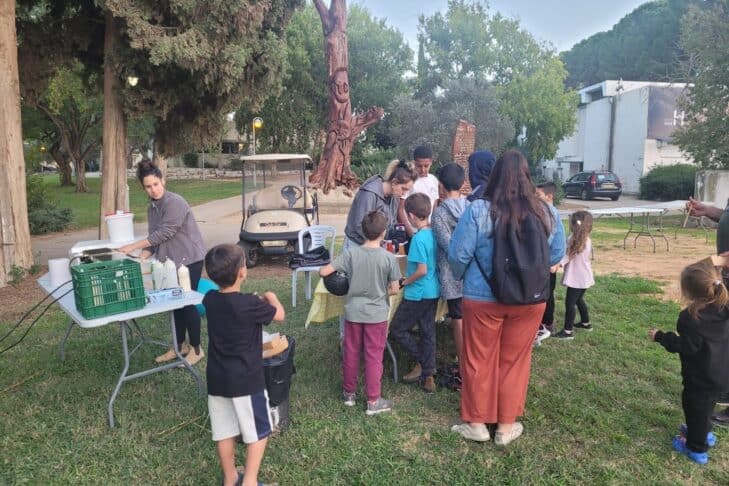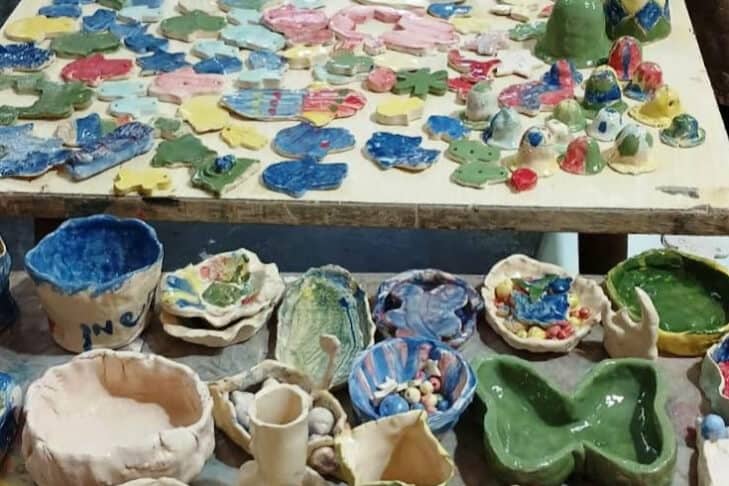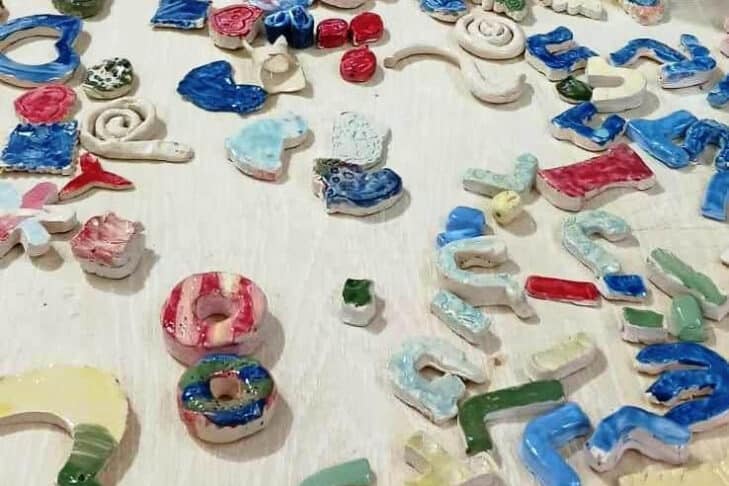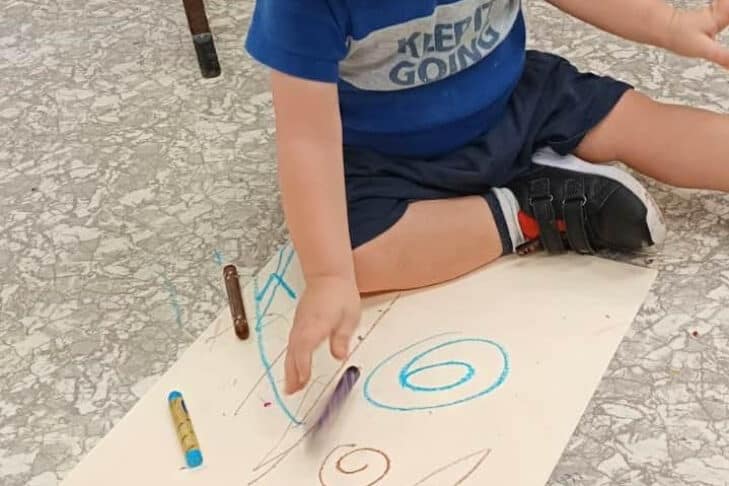On Oct. 7, Iris London, a married mother of four, says she and her family woke up in the Southern Israeli town of Ashkelon to what quickly became a nightmare.
“I turned off the air conditioning so that, God forbid, a terrorist won’t hear that someone is inside the house,” she recalls. “I never thought I would have to go through this.”
London knew that she and her children had no choice but to leave. Together, they fled to the 40-acre campus of social change organization Givat Haviva, where they stayed for more than two months.
Once settled amid the blue skies and green grass of Givat Haviva, “my son told me, ‘I can breathe here,’” London says. “This place gave us the ability to breathe.”
The Londons were among dozens of shaken families that turned to Givat Haviva looking for a new home. On Oct. 8—one day after Hamas invaded Israel—evacuees began to arrive without notice at the organization, which normally focuses on creating a peaceful Jewish and Arab shared society in Israel.
Immediately, staff at Givat Haviva welcomed the evacuees. Most of those who arrived were women and children from Ashkelon, which is impacted by constant rocket attacks. (The men in the families had already left to serve in the Israel Defense Forces.)
“We didn’t hesitate,” says Mohammad Darawshe, Givat Haviva’s director of strategy. “We told everyone who arrived that we would take them in, even though we didn’t have the budget. We felt this was critical for us as an organization to stand up in this moment for Israeli society and be available to those in need.”
A home away from home
Through word of mouth, 260 evacuees found their way to refuge at Givat Haviva, which is located between Haifa and Tel Aviv.
There, they were swiftly housed in campus dorms and given clothes, meals and snacks, mental health and trauma support, access to laundry and technology, security, and more. Givat Haviva brought in additional staff and volunteers to organize classrooms for the older children (who were eventually enrolled in the regional school district), a kindergarten for the younger ones and social, cultural, and art activities for everyone.
Givat Haviva staff, who are both Jewish and Arab, selflessly delayed receiving their salaries for 10 days to allow the organization to quickly cover the unexpected costs.
“For us, keeping the evacuees safe was not only about providing them with food and a bed,” says Givat Haviva executive director Michal Sella. “It was also giving them the feeling that they’re welcome here, that their kids have something to do every day, that they have great activities, and that we can take care of them for as long as they need.”
“You proved we were not alone in this”
In November, CJP stepped in to help. Thanks to support from generous donors, CJP granted $315,000 from its Israel Emergency Fund to help Givat Haviva cover the costs of hosting the evacuees, which came to $110 per person daily—or nearly $2 million in total.
“We went into this with goodwill, and we hoped that people and communities that believed in goodwill would step in to help,” says Darawshe. “I am so grateful that we were met with the same belief in good from Greater Boston’s Jewish community. You understood that this was a moment we needed to rise together to the occasion. You proved that we were not alone in this.”
Evacuees stayed through the end of December, when it was finally safe for them to go home. Since then, some of them have been back to visit Givat Haviva—which has resumed its shared society work—with cake, hugs, and gratitude.
A shared destiny and future
While he was scrambling to take in hundreds of evacuees, Darawshe was feeling the impact of the war on a personal level.
His 23-year-old cousin, Awad Darawshe (z”l), an Arab-Israeli paramedic, was killed on Oct. 7. Awad was working at the Nova music festival, the site of the initial Hamas attack. He refused to evacuate in hopes of saving others.
Darawshe says he was incredibly moved that Jewish and Arab staff at Givat Haviva, already working in overdrive, took the time to pay condolences to his family.
“The staff and I really felt that we were in this together, and while we are licking wounds, we have to take care of those who survived,” he says. “We had a sense of a shared destiny and a shared future—for everyone.”
Support CJP so we can continue meeting the needs of the Jewish community in Greater Boston and abroad.


